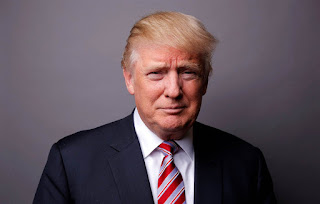Tuesday, February 14, 2017
Tech Companies Lining Up to Sue President Trump
Nearly 100 of the nation’s and, in some cases, the world’s largest companies recently filed a legal brief “condemning” President Trump’s executive order on immigration. The tech sector, in particular, has been very critical of Mr. Trump’s policy, but this takes it a step further.
Who’s involved in this action? Big names from technology include Apple, Facebook, Airbnb, Google, Intel, Zynga, Netflix, Snap, and Uber. But tech brands are not the only ones who jumped onto the bandwagon going after the Trump Administration’s so-called “Muslim ban” executive order. Stalwart American brands such as Levi Strauss & Co are also on the list, according to various media outlets.
According to the brief, immigrants are important to society and have a strongly positive impact on the economy and society. Media reports quote the brief saying:
“Immigrants make many of the Nation’s greatest discoveries and create some of the country’s most innovative and iconic companies… America has long recognized the importance of protecting ourselves against those who would do us harm. But it has done so while maintaining our fundamental commitment to welcoming immigrants—through increased background checks and other controls on people seeking to enter our country…”
This kind of language makes no bones about where the top leadership of those companies is coming from but is it fair of those people to tag everyone who works for them with the same perspective? Some say it’s their company, they can say and do what they like. Others take the opposite view, saying corporations need to get out of politics. Just do business and keep the political dealings and motivations behind closed doors.
The latter argument, while restrictive, is gaining steam in a world where the least provocation, the smallest political statement, can send people – even the President into a tizzy. Recently, Mr. Trump tweeted his displeasure at Nordstrom’s for dropping his daughter, Ivanka’s lines of clothing and jewelry. The company says it was a totally financial decision, but neither Trump nor many of his supporters are buying that line.
So, what happens when nearly 100 companies make this kind of directly political statement, one in which there is no ambiguity or business reason? The answer, of course, is, “it depends.” Consumers are not always consistent in how they behave toward this kind of thing. When Chick-Fil-A’s owner came out strongly in favor of “traditional marriage,” many gay rights activists called for a boycott. Millions agreed. Still, multi-millions said, “we like their chicken, not their politics, so we’ll still eat there.”
This is the most likely outcome. Some who like Levi’s will keep wearing them. Others will go for Wrangler or some other brand. Folks who like Apple or Uber or Netflix will keep using them or not because, in the end, it’s often not about the political statement. It’s about what people are willing to give up to make it.
William Doonan is a tax law and legal expert in New York.
Subscribe to:
Post Comments (Atom)

No comments:
Post a Comment